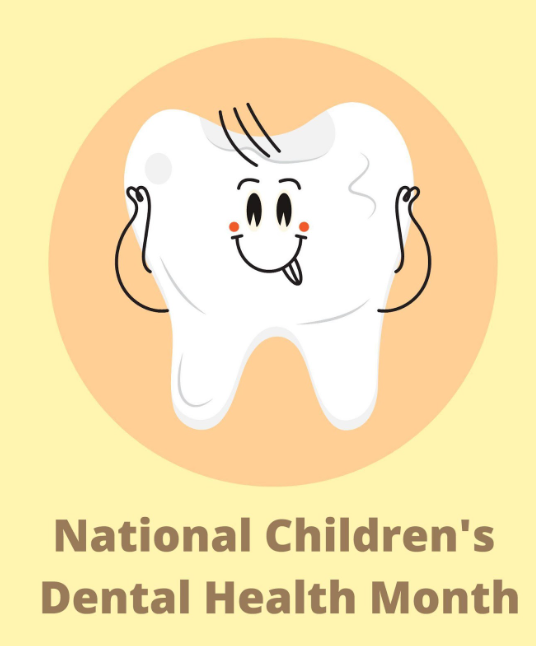Top 5 Signs You May Need a Dentist Visit (And Why You Shouldn’t Ignore Them)
Top 5 Signs You May Need a Dentist Visit (And Why You Shouldn’t Ignore Them)

Maintaining oral health isn’t just about having a bright smile—it’s closely linked to your overall well-being. While most people know they should see a dentist twice a year, many avoid or delay appointments until discomfort becomes unbearable. Ignoring early warning signs can allow dental issues to escalate into painful and costly problems. By paying attention to subtle cues your body gives, you can take proactive steps to preserve your dental health and prevent long-term complications.
Let’s explore the top five signs that indicate it’s time to schedule a dentist visit—and why brushing these symptoms aside could cost you more than your smile.
Persistent Tooth Pain or Sensitivity
Tooth discomfort is one of the clearest signals that something is wrong. Pain may be sharp, dull, throbbing, or constant—and it rarely goes away on its own. Often, pain results from cavities, tooth decay, or infection. It might also stem from exposed tooth roots, cracked teeth, or worn enamel.
Sensitivity to hot, cold, or sweet foods is another red flag. If sipping a hot coffee or biting into ice cream makes you wince, it’s likely due to an underlying issue such as enamel erosion or gum recession. These conditions expose the sensitive inner layers of the tooth, making them vulnerable to external stimuli.
Delaying treatment in hopes the pain will subside can be dangerous. What may begin as a minor cavity can quickly develop into pulpitis, abscess formation, or even tooth loss. Early dental intervention can treat the root cause, relieve discomfort, and prevent complications that could require more extensive procedures like root canals or extractions.
Bleeding Gums While Brushing or Flossing
If you notice blood when you brush or floss, it’s time to take it seriously. While many people dismiss bleeding gums as a result of brushing too hard or flossing too aggressively, it is more often a sign of gingivitis—the earliest stage of gum disease.
Healthy gums should not bleed with routine cleaning. Inflammation and bleeding occur when plaque and tartar accumulate along the gumline, irritating the soft tissue and allowing harmful bacteria to flourish. If left untreated, gingivitis can advance to periodontitis, a more severe condition that affects the bone supporting your teeth. Periodontitis can lead to gum recession, loose teeth, and eventual tooth loss.
Besides bleeding, other signs to watch for include red, swollen, or tender gums, bad breath, and a metallic taste in your mouth. A professional cleaning and periodontal assessment can stop gum disease in its tracks, restore gum health, and protect your smile from long-term damage.
Chronic Bad Breath That Doesn’t Improve
Occasional bad breath after a strong meal or a morning wake-up is normal. However, persistent halitosis—bad breath that doesn’t go away with brushing, flossing, or mouthwash—can indicate an underlying dental issue.
One of the most common causes is an accumulation of bacteria in the mouth, particularly in the presence of cavities, gum disease, or poor oral hygiene. Food particles trapped between teeth or in deep pockets around the gums can decompose and emit foul odors. Other culprits include dry mouth (xerostomia), oral infections, or dental appliances like ill-fitting dentures.
In some cases, bad breath may be linked to systemic health conditions like diabetes, liver disease, or gastrointestinal disorders. A dentist can evaluate your oral health, rule out dental causes, and provide solutions such as deep cleaning, antimicrobial rinses, or adjustments to your hygiene routine.
Ignoring this symptom not only affects your confidence and social interactions but also allows potential infections or chronic conditions to worsen. Early diagnosis and targeted treatment can help restore fresh breath and identify any more serious concerns.
Visible Changes to Teeth or Gums
Our mouths often give us visual cues when something isn’t right. Pay attention to any noticeable changes in your teeth or gums, even if they’re not painful. These can include discoloration, white or dark spots on teeth, chips or cracks, or receding gums.
Changes in the position or alignment of teeth, such as crowding or gaps that were not previously present, may also be signs of underlying issues like gum disease or bone loss. Swollen or misshapen gums, ulcers that don’t heal, or unexplained lumps in the mouth should always prompt immediate attention.
Tooth discoloration can be due to staining, but it may also signal internal damage or enamel loss. Receding gums may expose roots and cause sensitivity or leave teeth more vulnerable to decay. Even seemingly cosmetic issues like chips or fractures can compromise the structural integrity of your teeth and lead to infection.
Regular dental exams allow professionals to detect these changes early. Through digital X-rays, visual inspection, and preventive care, dentists can diagnose problems before they become serious and suggest appropriate treatments such as fillings, bonding, gum therapy, or restorative procedures.
Difficulty Chewing or Jaw Discomfort
If you experience difficulty while chewing, biting, or moving your jaw, it's more than a temporary nuisance—it’s often a sign that something is off with your dental alignment, jaw joint (TMJ), or tooth structure. You might hear clicking or popping sounds when opening or closing your mouth or feel pain around the jaw, ear, or face.
This discomfort could stem from a variety of conditions including temporomandibular joint disorders (TMD), bruxism (teeth grinding), tooth fractures, or improperly aligned bites (malocclusion). These issues can wear down teeth, cause chronic headaches, and impact your ability to speak or eat comfortably.
Ignoring jaw discomfort can lead to progressive joint damage and increased tension in the head and neck. Additionally, untreated bruxism can erode enamel and contribute to tooth sensitivity and fractures. A dentist can evaluate your symptoms, offer bite adjustments, provide night guards, or refer you for TMJ therapy as needed.
Seeking help early can prevent further complications and improve your quality of life. It also ensures that small problems don’t evolve into larger orthopedic or muscular issues over time.
Don’t Wait—Preventive Care Is Powerful
It’s common to delay a dentist visit until something feels urgent. However, by then, the condition often requires more complex and expensive treatment. The truth is, many dental problems begin silently. What starts as minor irritation or discomfort can quickly turn into something that affects your eating, sleeping, and confidence.
Visiting a dentist as soon as you notice these warning signs allows for early detection, effective treatment, and peace of mind. More importantly, it can save your natural teeth, protect your overall health, and reduce future dental expenses.
Dental visits are not just about fixing problems—they're about maintaining wellness. Your oral health is interconnected with your immune system, cardiovascular health, and more. Neglecting it can have far-reaching consequences.
Make Oral Health a Priority
Caring for your teeth and gums should never be an afterthought. Whether you’re dealing with bleeding gums, persistent bad breath, or jaw pain, these symptoms are your body’s way of telling you that something needs attention. Regular dental visits, paired with daily hygiene and healthy habits, are the foundation of lifelong oral health.
Even if you’re not in pain, staying vigilant about changes in your mouth can prevent serious problems before they begin. Trust your instincts—and if something doesn’t feel right, don’t wait.
If you're experiencing any of the symptoms above, don't ignore them. Prioritize your health and schedule a visit with your dental provider today. At
Patriot Family Dental, we offer comprehensive care with compassion, advanced diagnostics, and personalized treatment plans. Call us at
(931) 645-2469 or
visit us to book an appointment to protect your smile and your well-being.












